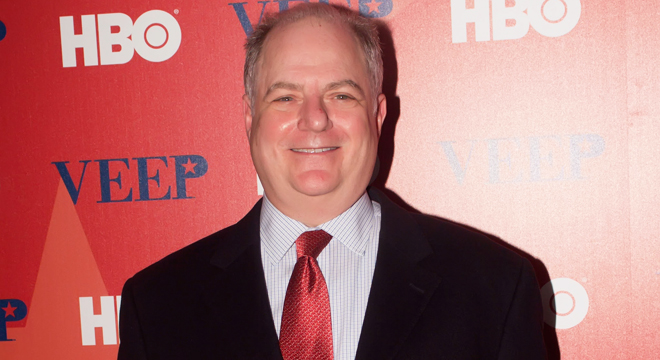New York magazine’s Frank Rich recently opened up to TPM about why civil political discourse might not be so great, the state of the Pulitzer Prizes and how he feels reborn as a writer.
How does writing for New York differ from writing for the New York Times?
It’s what I had hoped for. As a newspaper writer — first as a drama critic, and then as an op-ed columnist — the form becomes constricting, to me, at least. I love writing narrative more than polemics. I wanted to have more space, and not have to jump to a conclusion at the end of every calendar week. I found it very liberating as a writer. The pieces are much longer. My themes haven’t changed but the way I treat them, I feel, has. I feel kind of reborn as a writer.
What did you think of the Pulitzer results?
I felt that some of the awards they did not give — editorial writing and for fiction — were pretty much embarrassing. As many people have written, there was a lot of good fiction written this year. There’s something seriously wrong. The fact that they’re talking about their procedures, arcane practices that have been there since 1912, shows a little bit how out of touch the newspaper business is. Otherwise, it also showed that the business is changing. I think less is revealed by the fact that The Huffington Post and Politico got awards, than by the fact that the Washington Post and Wall Street Journal got none. Basically what the Pulitzers seem to be saying about the newspaper business is, there is one major paper, and then there are a bunch of, thankfully surviving, regional papers that do a piece of good work that’s worth being recognized.
Do you still get a physical newspaper?
I do. It may reflect my age. I get the print edition of the Times, the Journal, the Washington Post and The New York Post everyday. Often I’ve read two-thirds of them online, but somehow it’s a sentimental attachment.
What’s the biggest story of the election season?
The biggest story is every different aspect of the American economy. On one level, it’s what is the unemployment rate? What is the state of the recovery? Another level, it’s also the question of inequality. Whatever side you’re on, I don’t think anyone could disagree that Romney and the Republican party and Obama are very much on the opposite side of the issues. It’s a really fascinating debate.
What’s the most under-covered story right now?
I feel more often that it’s a question of emphasis vs. over-covered. I would say the fact that the presumed Republican nominee is such a mystery to so many Americans suggests that his story has been under-covered.
How will historians sum up this presidential election?
Since we don’t know the results yet, I don’t know. I feel quite honestly that it may be a transitory period in American history. Romney does not really represent or embody, completely, the radical party, conservative party that the Republican party has become. Republicans who are going to vote for him look at him as a transitional figure as they get to the people they really want. Whether he wins or loses, it’s still a force that’s going to be reckoned with. Of course, if he doesn’t get it, they’ll say, rightly or wrongly, ‘we told you so.’ That’s where all the action is. It is like Romney is a placeholder for where that party is going.
Is there hope for civil political discourse in the U.S.?
No. I don’t hold out any immediate hope for that. I’m not sure civil discourse is the be-all, end-all. There’s a long history there of uncivil discourse. I wouldn’t describe myself as an optimist or pessimist. It’s a good thing that this economic debate and debate about inequality is happening. That’s all a plus. That’s been a 40-year story that has to be adjudicated by the American people. Now the American people are getting informed about it. They’ve become much more sophisticated about it. Now there are real things to argue about and debate, that have to do with the very fabric about what it means to be an American and what our ideals really mean. That’s all exciting. It doesn’t mean it will turn out to my satisfaction.
What are you learning right now?
A bunch of things. I feel really lucky, in that sense. In the case of New York magazine, I have to say, it is really exciting to be part of a publication that is, every day, dealing with all the challenges being thrown at print right now. The anxiety and transition for, really, every kind of, not just journalism, but culture, and how we relate to each other as people. New York has been something of a leader in trying to make the web work. I’m learning being around it.
What’s on your desk?
I keep around clips, physical clips, and more and more, Evernote. Books, notes interviews and all the physical material I need that’s part of the piece. My laptop, and sometimes when I’m writing, I listen to music. I’m a big jazz fan. I don’t want to listen to music with lyrics. I will listen to the classics, Miles Davis, Charlie Parker, the usual. Stan Getz, Monk.
What’s the best advice you ever got?
I would say the best I ever got was to follow your passion. Write about what you really care about, and pursue it as enthusiastically and all involvingly as you can.That’s what I’ve always done. I have more than one passion, which I’m lucky about. I always tell young people I talk to, as writers, if you’re passionate about covering the Mets, go after it. I’m a real believer of following your heart, in a sense, not doing what you think you should be doing as a career.
Who’s your favorite Fox News host?
Possibly because my perception has been skewed by watching Jon Stewart, I can not get enough of the crowd on Fox and Friends. There’s a level of full, contrived outrage and juvenile behavior that, even by the standards of morning television, is at such a low level. It’s priceless. It never fails to deliver laughs. There’s a nakedness to it that I find irresistible.










